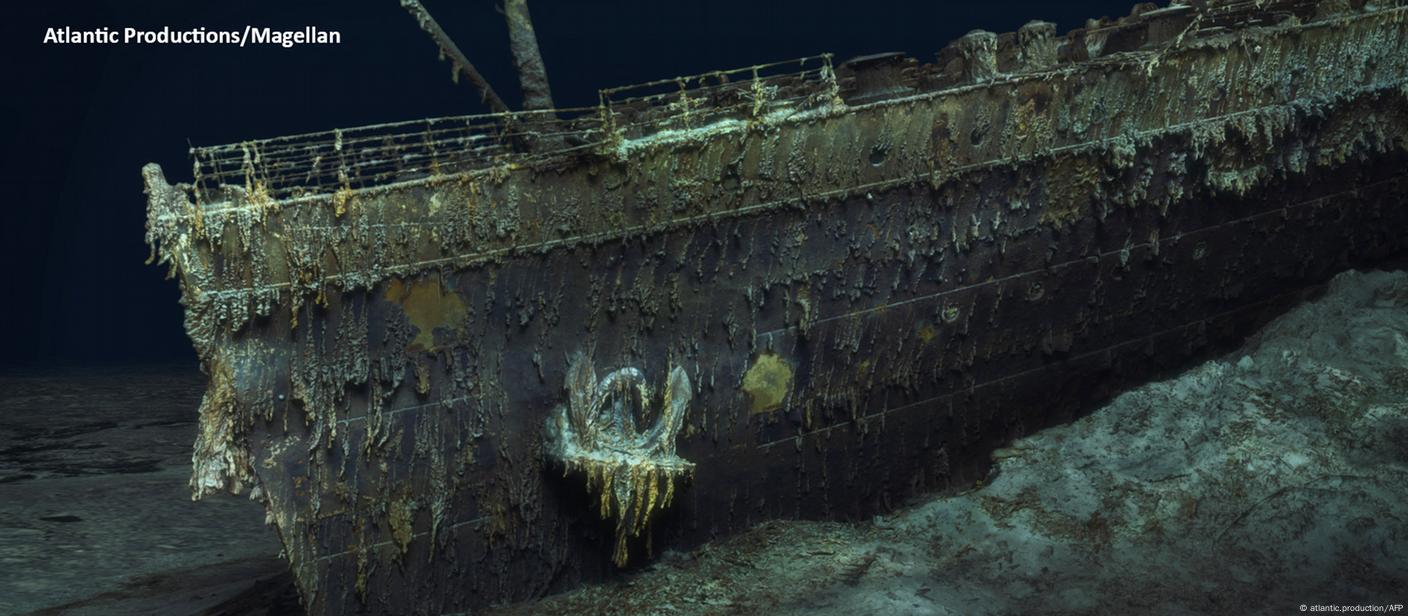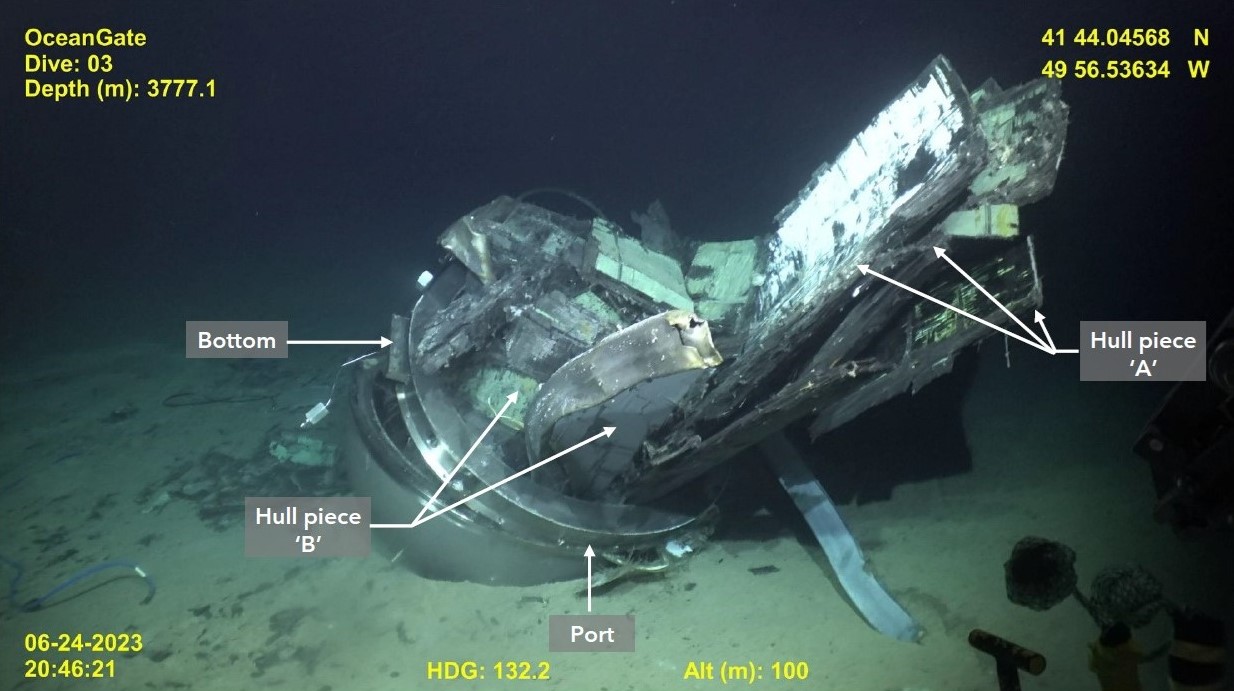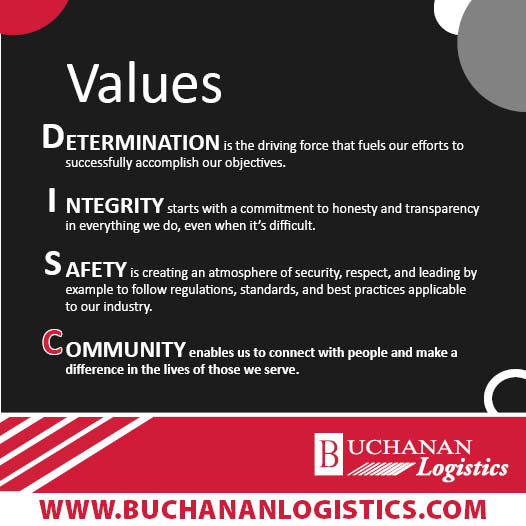
Lessons from the Titanic: Ensuring Safety in the Trucking Industry
I love the Titanic. The infamous shipwreck is an ever-deepening rabbit hole of interests, and its consequences on modern shipping and technology cannot be overstated. New laws and regulations were put in place after the disaster, regulating radio communication, lifeboats, and victim compensation. These laws became integral across the transportation industry, including trucking. As a result, transportation has become more regulated, structured, and ultimately much safer, with major incidents becoming increasingly rare.

When OceanGate’s Titan submersible lost contact with its mothership in June 2023, it became an international event of proportions not seen since the Titanic’s sinking. Deep-sea submersible travel is known for its safety and the rigorous science involved in every dive. There had been no major submersible accidents in almost fifty years of deep-sea exploration. Unfortunately, despite an extensive search and rescue mission, the wreckage site was discovered a week later. The Titan’s crew included Stockton Rush, CEO of OceanGate; Paul-Henri Nargeolet, a Titanic expert and the Titan’s pilot; British billionaire Hamish Harding; Pakistani businessman Shahzada Dawood and his 19-year-old son, Suleman. What led to this tragedy? And what can we in the trucking industry learn from it?
Stockton Rush co-founded OceanGate in 2009 with the mission to “Open the oceans for all of humanity.” The goal was to create submersibles that could be easily operated by anyone with minimal training. These submersibles were modified with inexpensive materials not typically used in deep-sea vehicles. Imagine building a truck out of used motorcycle parts and using a third-party wireless video game controller as the steering wheel. This was the Titan; it was created using untested carbon fiber, a third-party wireless video game controller, and a window not rated for the depths of the Titanic. All of this aimed to make deep-sea exploration more attainable and manageable for everyone.

The word “regulations” has developed a bad reputation, one Stockton Rush was aware of. Regulations lead to extra expenses and can make hiring staff eat into the development cycle. Yes, regulations can seem stifling when trying something new, especially when your business model revolves around anyone being able to use your product. But what about the human cost? Rules and regulations aren’t there to stifle creativity or innovation; they’re there to level the playing field and encourage safe behavior and standards. For example, Buchanan has maintained a "Satisfactory" safety rating continuously since 2011, as well as a less than 0.5% claim ratio. Here at Buchanan, we prioritize safety for everyone and still operate a business generating over $350 million annually.
In the official findings regarding the implosion, the Coast Guard report could not specify one exact mistake or finding which would have caused the explosion. It could have been the unrated carbon fiber hull, or the glue which connected the carbon fiber hull to the titanium cabin. When engineer David Lochridge brought up the dangers in the design and the materials used, Stockton Rush fired him. Roboticist Antonella Wilby was also fired for voicing safety concerns. We see repeatedly that when employees wanted more information or actual testing, they were fired. Rush employed paying tourists as “mission specialists” to skirt regulations on experimental vehicles. Monitoring systems were shut off, and dives were not recorded, making it impossible for the remaining employees to do their jobs. At Buchanan, we have 600 employees across all departments, with teams dedicated to specific customers, heavy haul, and expedited loads. Each of us is given the tools to perform our duties safely and consistently, with Buchanan maintaining a 5 Diamond rating on ITS and a 4.1 Star DAT rating. We would not be able to attain these ratings while running hundreds of loads a day if Buchanan wasn’t fair and supportive to its employees.

D.I.S.C. is an acronym within Buchanan that stands for Determination, Integrity, Community, and Safety. It is Buchanan’s mission statement and what we strive to embody every day as a company. Using it, we can dig into where OceanGate, particularly Stockton Rush, went wrong.
When it comes to Determination, Rush was determined for OceanGate to succeed even after it became clear that the submersible was dangerous. Buchanan is determined to be a successful business, but we are also determined to do this as safely as possible.
For Integrity, it doesn’t appear to be something OceanGate was worried about at all; Rush chose to lie to his passengers about the safety of the submersible, and regulations were ignored for the sake of speed and profit. This is at odds with what the transportation industry should set as a gold standard and what we as a company strive for.
Perhaps the greatest failure for OceanGate is when it comes to Safety. They left the untested multimillion-dollar machine out in harsh winter weather for months and then refused Coast Guard inspections. They did not have a plan in place for emergencies and ignored expert opinions repeatedly. If a trucking company did this, it would ruin them. We wouldn’t approve of such a load, let alone put a truck on the road in that kind of shape.
Then comes community, something I feel gets lost in this conversation. Buchanan strives to be an example in the transportation industry. We want the industry to thrive. Stockton Rush and OceanGate created a situation that put many lives at risk, resulting in the deaths of four other people, which is especially ridiculous because deep-sea exploration is otherwise a very safe form of transportation. We know how to make safe submersibles. But now the entire industry is under the microscope for their actions.
I love the Titanic, but the tragedy of that night isn’t lost on me. Hundreds of people lost their lives, and the worst part is, it didn’t have to be that way. This was not an easy article to write, but the OceanGate disaster, like the Titanic before it, could have been avoided. While this disaster happened miles below at the bottom of the sea floor, it is a reminder about the importance of our principles as an industry. It’s easy to see these as roadblocks and obstacles to profits and sales, but is the human cost of neglecting those things worth it? No, it isn’t.



